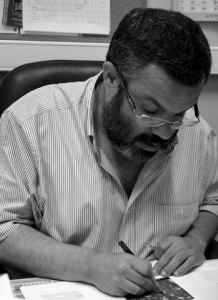
Professor Mário Costa, age 59, passed away unexpectedly on 3 June 2020.
Mário graduated in Chemical Engineering at University of Coimbra in 1984, obtained his PhD in Mechanical Engineering at Imperial College, London, in 1992, and his Habilitation in Mechanical Engineering at Technical University of Lisbon in 2009.
Mário was a Full Professor in the area of Environment and Energy at the Mechanical Engineering Department of Instituto Superior Técnico, University of Lisbon, where he taught several courses, including Thermodynamics, Combustion, Renewables Energies and Integrated Energy Systems. He supervised 8 Postdoc, 18 Ph.D., 77 M.Sc. and 35 Diploma students. He participated in more than 55 national and international projects in the area of Energy and Environment and (co-)authored one text book on Combustion (in Portuguese), more than 140 papers in international peer-reviewed journals, more than 180 papers in international conferences and gave more than 40 invited lectures at other universities and international symposia. Mário served as Associate Editor of the Proceedings of the Combustion Institute and belonged to the Editorial Board of the Aerospace, Combustion and Flame, Energy Conversion and Management, Energies, and Energy and Fuels.
Mário was the recipient of the Caleb Brett Award of the Institute of Energy in 1991, the Sugden Award of the British Section of the Combustion Institute in 1991, the scientific award Universidade Técnica de Lisboa/Santander Totta in 2010, the honourable mention Universidade de Lisboa/Santander Universidades in 2016, and the scientific award Universidade de Lisboa/ Santander Universidades in 2017. In 2020 he was elected Fellow of the Combustion Institute “for innovative research on solid fuel combustion, formation and control of pollutants, and mild combustion.”
According to a colleague, Mário had a profound and long-lasting impact within the combustion community.
This homage details more about Dr. Costa’s life and work.
The Combustion Institute honors Mário Costa’s accomplishments and the work of scientific leaders who make significant contributions for the advancement of many diverse communities around the world.
